Bringing home a new puppy is an exciting adventure, but without a proper puppy training schedule, that bundle of joy can quickly turn your home into chaos. Fortunately, science has shown us the most effective ways to structure training sessions for optimal results.
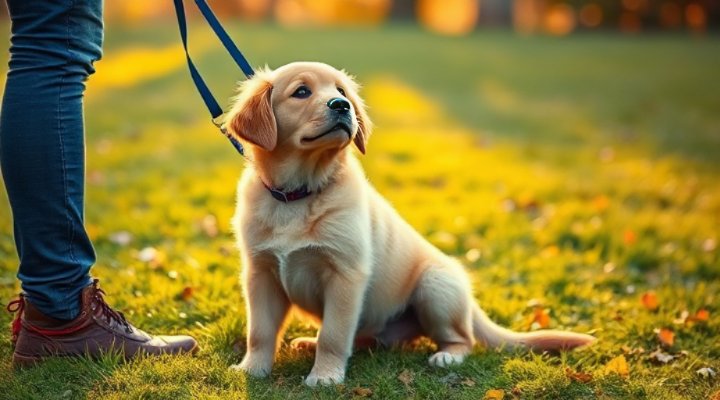
Why a Structured Puppy Training Schedule Matters
Just like human children, puppies thrive on routine. A consistent puppy training schedule helps your furry friend understand expectations and accelerates their learning. According to the American Veterinary Society of Animal Behavior, early socialization and training are crucial for preventing behavior problems later in life.
When I first brought home Max, my golden retriever, I thought love and treats would be enough. Boy, was I wrong! It wasn’t until I implemented a structured puppy training schedule that we both started making real progress.
The Science Behind Effective Puppy Training
Research shows that puppies have limited attention spans, typically just 5-15 minutes depending on age and breed. This means short, frequent training sessions throughout the day work much better than marathon sessions. Our scientifically proven training methods article explains this in more detail.
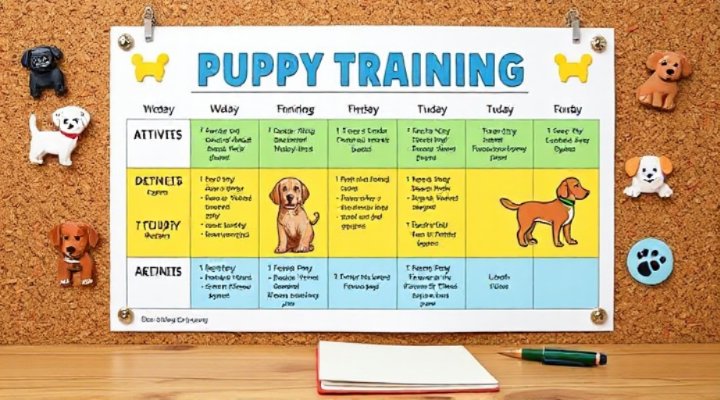
8-Week Puppy Training Schedule
Here’s a sample schedule that combines the best practices from veterinary behaviorists and professional trainers:
- Morning: 5-minute obedience training (sit, stay) followed by breakfast
- Mid-morning: Potty training reinforcement and short play session
- Afternoon: 5-minute leash training and socialization exercises
- Evening: Crate training and calm behavior reinforcement
For a more detailed age-specific plan, check out our puppy training schedule by age guide.
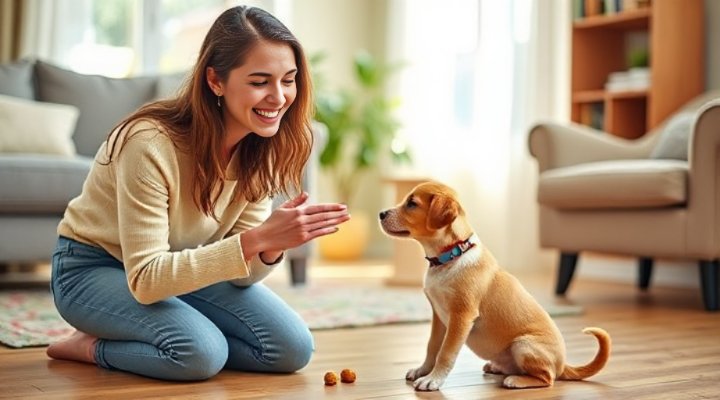
Essential Components of a Puppy Training Schedule
1. Basic Obedience Training
Start with simple commands like ‘sit’, ‘stay’, and ‘come’. Keep sessions short and positive. Remember, consistency is key – use the same words and gestures each time.
2. Potty Training
Take your puppy out frequently, especially after meals, naps, and play sessions. Praise them immediately when they go in the right spot. Our potty training guide offers more tips.
3. Crate Training
A crate provides a safe space for your puppy and aids in house training. Introduce it gradually with positive associations.
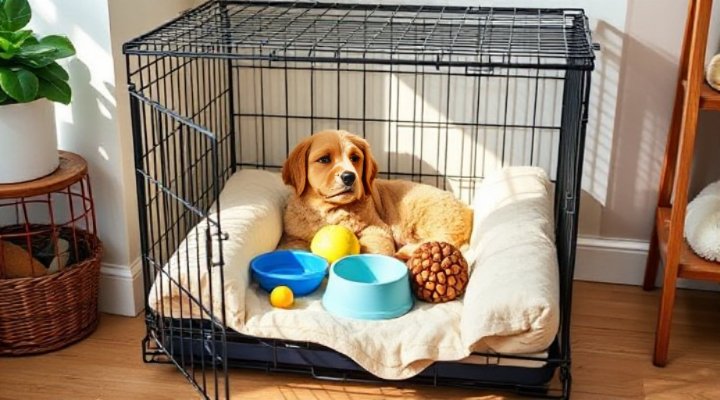
4. Socialization
Between 3-14 weeks is the critical socialization period. Expose your puppy to different people, animals, and environments in a positive way. The University of Illinois College of Veterinary Medicine emphasizes the importance of this developmental stage.
5. Bite Inhibition
Puppies explore the world with their mouths. Teach gentle play by yelping when bites are too hard and redirecting to appropriate chew toys.
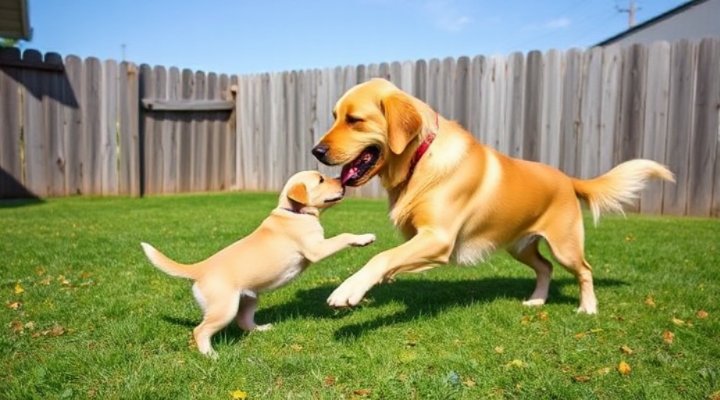
Adjusting Your Puppy Training Schedule
As your puppy grows, their training needs will change. Around 4-6 months, you can start:
- Longer training sessions (10-15 minutes)
- More advanced commands
- Public outings for continued socialization
- Addressing any emerging behavior issues
For puppies showing signs of anxiety, our separation anxiety training guide can help.
Common Puppy Training Schedule Mistakes
Even with the best intentions, many new puppy parents make these errors:
- Inconsistent timing of training sessions
- Expecting too much too soon
- Using punishment instead of positive reinforcement
- Neglecting mental stimulation
- Skipping the socialization period
Remember, every puppy learns at their own pace. What works for one may need adjustment for another. The key is patience and consistency with your puppy training schedule.
Final Thoughts on Puppy Training Schedules
A well-planned puppy training schedule is your roadmap to raising a happy, well-adjusted dog. By investing time in these early months, you’re setting the foundation for years of companionship. For more training resources, explore our puppy training tips collection.
Related Keywords: puppy obedience training, dog training schedule, puppy training plan, crate training puppies, puppy socialization timeline, positive reinforcement dog training, house training puppies
